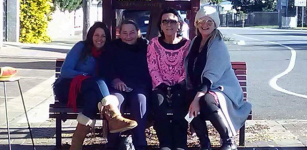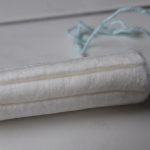Medicinal Cannabis for the Elderly: An Interview with Canna Nanna Karen Burge

The Therapeutic Goods Administration’s Special Access Scheme (SAS) is a formal arrangement that allows patients to import unapproved therapeutic goods into the country. There are two main pathways to access imported medicines via this scheme: category A and category B.
Category A allows terminally ill patients fast access to imported products, as a doctor only has to notify the TGA that a patient will be importing medicine. Category B is for all other patients to access imported products. It’s a slower process and doctors need to seek the permission of the TGA.
In November last year, former Australian health minister Sussan Ley prohibited patients with only a few months left to live from specifically accessing medicinal cannabis products via category A. This meant that dying patients were left with the category B option, which can take up to 6 months.
Preventing relief
On June 13 this year, Australian Greens leader Richard Di Natale moved a disallowance motion through the federal Senate, which reversed the prohibition and allowed terminally ill patients to import up to three months’ worth of medical marijuana products from overseas.
However, in August, the federal government blocked this access for the terminally ill again. The Office of Drug Control sent out an email warning importers that they would be in breach of their licences if they supplied “any imported medicinal cannabis product to a patient under SAS-A.”
On Tuesday, senator Di Natale introduced the Medicinal Cannabis Legislation Amendment (Securing Patient Access) Bill 2017 into parliament. If passed, it will prevent the government from using importers’ contractual conditions to block access to medical marijuana via category A.
But the question still remains as to why the federal government is so determined to block dying patients prompt access to cannabis medicines that can ease their pain and improve their quality of life during the time they have left.
No legal product
The federal government has acknowledged that cannabis is a beneficial medicine. In February last year, the Turnbull government passed legislation allowing for the cultivation and manufacture of medical marijuana products.
Despite a total of 18 cannabis licences having been issued, the Australian Department of Health website states that “it will be some time before domestically produced products are available to the public.”
Australian health minister Greg Hunt announced an interim cannabis medicine importation scheme last February, and the first two batches arrived from Canada in May. But of the tens of thousands of medicinal cannabis users in the country, only a handful can obtain any legal product.
The Canna Nannas
A group of four grandmothers from the east coast are taking matters into their own hands. Dubbed the Canna Nannas, the group are about to tour the country to educate the elderly about the benefits of cannabis and break down some of those myths from the past.
Sydney Criminal Lawyers® spoke to Karen Burge, co-founder of the Canna Nannas, about the medicinal and nutritional benefits of the herb, why importing medicine isn’t the answer, and how they encourage patients to grow their own.
Firstly, Karen, who are the Canna Nannas? And what are they up to?
The original four Canna Nannas are myself Karen Burge, the vice president of the Church of Ubuntu, Deb Lynch and Gail Hester, the founders of the Medicinal Cannabis Users Association, and Belinda Doonar from Women for Hemp.
Our first event was held in Tugun the first weekend in September, followed by a cannabis picnic at King Edward Park in Newcastle the week after.
We have only been operating since August 2017. And now we’ve been requested to tour every major city in Australia.
So, you recently held your first event in Tugun, Queensland. What was the turnout like? And what was the response of the audience?
The turnout was fantastic. We had close to a hundred people attend over the weekend. It was a two-day event. And the feedback was amazing.
We had an elderly couple say they felt like they won the lotto, while another couple did a live video encouraging the elderly to forget about the lies that they’ve heard about cannabis, and come to a Canna Nannas event to learn the truth about the healing benefit, the pain relief and the better quality of life.
And what would you say are the benefits of medicinal marijuana?
There is no disease that can not benefit from medicinal cannabis, because it works with your endocannabinoid system, which is the body’s main regulatory system. It governs your immune system, cardiovascular system, endocrine system and metabolism.
The purpose of cannabis/hemp consumption is to achieve and maintain homoeostasis, which is perfect balance for the body, mind and spirit.
What are you teaching people who attend your events about cannabis use?
We’re teaching the elderly about the importance of understanding the healing properties of hemp as a dietary essential, and cannabis as a medical necessity. We teach them about the importance of understanding the function of the endocannabinoid system.
And we’ve basically taught them about using it as food. The ultimate goal would be that we all have it as fresh cannabis, because the fresh cannabis doesn’t contain THC. There’s over 450 constitutes in the cannabis plant. These are omegas, vitamins and minerals.
So, when consuming it as a fresh plant, it doesn’t have the psychoactive effect. That’s obtained through heating.
You mentioned the lies of the past. Older members of the community were subject to the most intense propaganda of the war on drugs, such as those reefer madness stereotypes.
When you’ve approached sessions like this, have you ever had to overcome any of those prejudices?
Sometimes yes, as I’ve been running events like this for years. But, I think that everyone who comes to our events, actually has an open mind. They’ve tried all the allopathic treatments. They’ve listened to their doctor.
They’re all sick of working out that the medications that they’re being prescribed are just a band aid. And more often than not, they’re having to have more drugs prescribed to overcome the effects of the side effects from the drugs that they’re taking.
They’re just starting to do a little bit of research themselves and seeing the benefits with people having a better quality of life. And they’ve exhausted all avenues to try and improve their health and have better quality of life. They’re just getting sicker.
You’re quite a vocal medicinal cannabis advocate. Do you still encounter those prejudices amongst the general public these days?
We still do come across these prejudices. And it’s really sad.
I’m such a huge advocate on the benefits of cannabis and hemp as food, because as a society we’re programmed to believe that sugar-coated donuts are food.
I personally assumed that food in supermarkets was safe for human consumption. But with an autoimmune disease, and doing research, I realised the food that I was eating was actually making me sick.
As soon as I switched to a plant-based diet, the symptoms of my autoimmune disease and chronic fatigue disappeared. Because I was giving my body the right nutrients, so my body could heal and actually function in the right way.
The federal government legalised the cultivation and manufacture of medicinal cannabis products last year. This year, minister Hunt announced a fast-track importation scheme to fill the gap, while the local market gets up and running.
What do you think about the laws that have been passed? And do you expect those attending your sessions will be able to get their hands on legal homegrown or imported product any time soon?
The government’s proposed plans for medicinal cannabis mean that Australians still have years to wait for a synthetic or isolated cannabis product that is likely to be imported and only available for a select few.
The Canna Nannas believe that it is a fundamental human right to use this plant that was gifted to us from creation as food and medicine, like it has been for thousands of years, before prohibition in 1937.
This week, senator Di Natale introduced another piece of legislation to stop the government blocking fast access to imported medication for the terminally ill.
What are your hopes of this bill actually changing the situation?
I get disturbed when I see the word “import.” We have this incredible land in Australia, where we could be growing our own cannabis.
The government’s proposal to import synthetic cannabis or an isolate cannabis – meaning they take out a tiny bit of the 450 constitutes of the plant and just offer people that – is long and drawn out. It could take years. And people that are terminal, don’t have years to wait.
And with the government’s proposal, why should someone have pain relief in Queensland and not in NSW? And why should a child be able to be treated with whole plant cannabis for epilepsy in Western Australia, but not in South Australia?
Why do you think the federal government is so adamant about blocking fast access to imported product for the terminally ill?
Because they can’t make as much money out of it. Pharmaceutical companies are reliant on sick people to continue their livelihood. If we are growing and making our own medicine in our backyard, that’s not going to work for them.
But, going back to the question, I think they’re trying to work out how they can make the most amount of money out of our plant.
Cannabis is a medicine that can help with many illnesses. Why do you think it was outlawed in the first place?
The cannabis/hemp plant was prohibited in 1937, because it was a threat to multinational corporations and now it’s a huge threat to Big Pharma. Hemp has over 55,000 uses.
The Canna Nannas believe that prohibition is a crime against humanity and prohibition hurts good people. We also believe and know through personal experience that cannabis is the gateway to good health.
We will continue to lobby and stand up for all Australian’s rights to have affordable access to the world’s oldest and safest natural medicine, and the most nutrient rich food known to man.
Cannabis is as cheap to grow as parsley. And we believe it is our fundamental human right to grow our own cannabis in our own backyard.
There have been no recorded deaths ever from cannabis. This confirms that cannabis is safer than alcohol, prescription drugs, tobacco and processed foods, which all lead to disease and premature death.
So, you’re teaching the elderly about the many medicinal and nutritional benefits of the plant. However, those people attending your sessions can’t actually obtain it legally. And if they can, it’s in a synthetic form.
What are these people meant to do if they want to benefit from medical marijuana?
We encourage them to grow their own. We encourage them to ask members of the community for seed and grow their own.
And lastly, Karen, what’s next on the agenda for the Canna Nannas?
The Canna Nannas have been invited to every major state, particularly, the east coast of Australia between Melbourne and Cairns. So, we’ll be planning our tour within the next month. And we’re really looking forward to it.
We’ve got Melbourne and South Australia this year. And early next year, we hope to be in Western Australia.
Within the next month, we’ll have our timetable set up.
And can people learn about your events on social media?
Yes, on the Canna Nannas’ Facebook page.
Karen, thanks very much for taking the time out to have this chat with us today.
Your welcome. Thank you.







